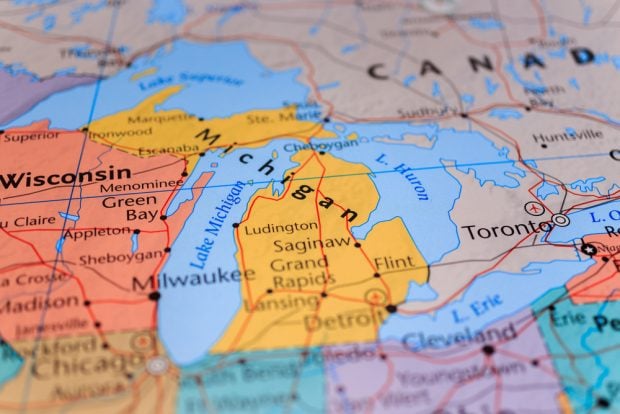 About a quarter of CU mergers were due to poor financial condition (Image: Shutterstock).
About a quarter of CU mergers were due to poor financial condition (Image: Shutterstock).
Of the 52 approved mergers approved by the NCUA at the end of the third quarter, 25% of the cooperatives were consolidated because of their poor financial condition.
An additional three credit unions got the green light to merge because of poor management and the inability to recruit new executive leadership. What's more, a Washington credit union — the last of the 27 credit unions that once served employees and families of Sears department stores —- was forced to merge because of declining membership.
Recommended For You
There were five credit unions with assets of $100 million to more than $600 million that received approval to combine their operations in the third quarter, according to the NCUA.
Four of the five credit unions were merged for reasons of expanded services, while one New York-based cooperative was consolidated because of its poor financial condition stemming from a non-performing $69 million taxi medallion loan portfolio.
The largest merger of the third quarter was the $663 million Denali Credit Union in Anchorage, Alaska, into the $1.6 billion Nuvision Credit Union in Huntington Beach, Calif. Additionally, the $348 million Mill City Credit Union in Minnetonka, Minn., merged with the $540 million City, County Credit Union in Saint Paul, Minn., the $157 million Bull's Eye Credit Union in Wisconsin Rapids, Wis. combined with the $1.8 billion Connexus Credit Union in Wausau, Wis., and the $100 million Port Alliance Federal Credit Union in Norfolk Va. consolidated with the $2.1 billion Chartway Credit Union in Virginia Beach.
The $183 million Bay Ridge Federal Credit Union in Brooklyn, N.Y., chartered in 1934, got the green light to merge in the third quarter because of its poor financial condition from a non-performing taxi medallion loan portfolio. The cooperative combined operations with the $1.5 billion Island Federal Credit Union in Hauppauge, N.Y.
Bay Ridge FCU, which managed a $69 million in taxi medallion loans, fell into substantial financial challenges over the last three years.
While it posted net income gains of $1.4 million and $1.6 million in 2013 and 2014, respectively, its net income gains plummeted to just $76,413 in 2015 and $434,189 in 2016.
Bay Ridge's financial condition became much worse in 2017.
At the end of last year's second quarter the credit union recorded a net income loss of $2.1 million, a $2.6 million net income loss at the end of the third quarter and a $4.3 million net income loss at the end of the fourth quarter of 2017, according to NCUA financial performance reports. Even though Bay Ridge's foreclosed and repossessed property was only $120,000 at the end of June 2017, that number soared to more than $3 million by the end of June 2018.
Twelve additional credit unions that also received approval to merge because of their poor financial condition were well under $30 million in assets.
Because of poor management, the $17.7 million Palmetto Trust Federal Credit Union in Columbia, S.C., was approved to merge with the $1 billion Self Help Credit Union in Durham, N.C.
Unable to find new executive leadership, the $1.7 million Fort Smith Municipal Employees Credit Union in Fort Smith, Ark., received the OK from the NCUA to combine with the $12.1 million River Town Credit Union also in Fort Smith, Ark., and the $690,263 Rabun-Tallauh Credit Union in Tiger, Ga., got the green light to amalgamate with the $58 million North Georgia Credit Union in Toccoa.
Its declining field of membership forced the $3.5 million Sears Spokane Employees Credit Union to merge with the $73 million PrimSource Credit Union also in Spokane, Wash.
In 1990, Sears Spokane Employees CU served nearly 1,000 members. That number dwindled to 528 by 2018.
Chartered in 1948, Sears Spokane Employee CU was the last of the 27 credit unions across the nation that had once served employees of the Sears national department store chain that is in bankruptcy proceedings, which is expected to lead to the closure of the iconic retailer for good, according to national media reports.
© 2025 ALM Global, LLC, All Rights Reserved. Request academic re-use from www.copyright.com. All other uses, submit a request to [email protected]. For more information visit Asset & Logo Licensing.






